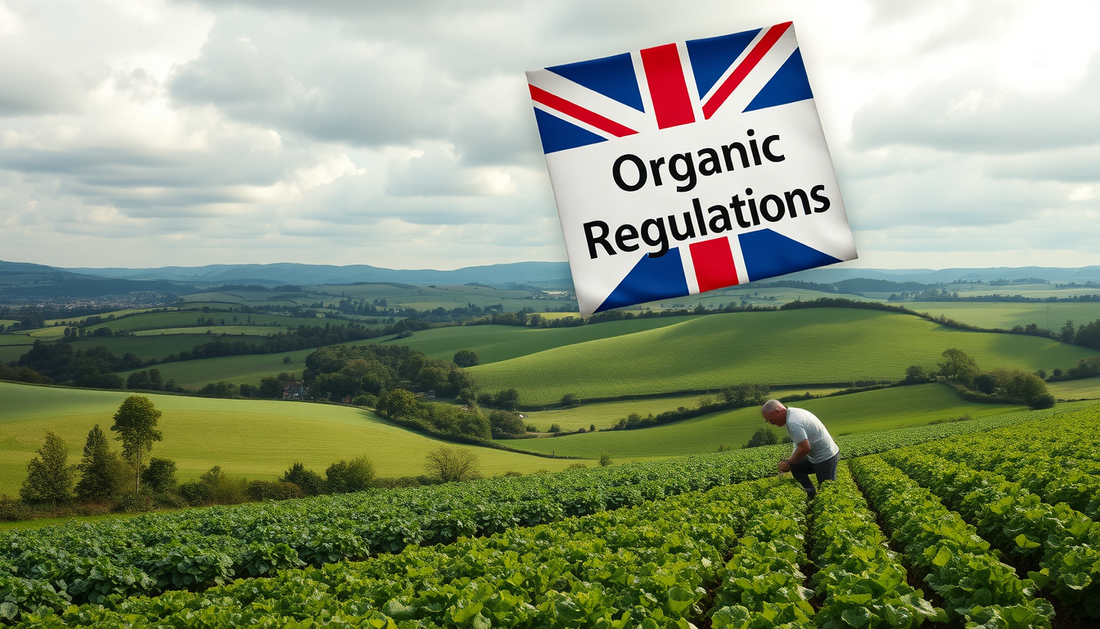In today's world, the demand for organic products has been steadily rising, as more and more consumers seek out sustainable and environmentally-friendly options. In the United Kingdom, the organic market has seen significant growth, with a wide range of organic food, cosmetics, and household items available to shoppers. However, understanding the complex web of organic regulations can be a daunting task.
The UK's organic regulations are governed by the Department for Environment, Food and Rural Affairs (DEFRA), which oversees the Organic Food and Farming Standards. These standards outline the requirements for a product to be labeled as "organic," ensuring that it meets strict criteria for production, processing, and labeling. The certification process involves a thorough inspection and verification by an approved organic control body, providing consumers with the assurance that the product they're purchasing truly adheres to organic principles.
One of the key aspects of the UK's organic regulations is the prohibition of certain substances and practices. Organic farmers and producers are not permitted to use synthetic fertilizers, pesticides, or genetically modified organisms (GMOs) in their operations. Instead, they must rely on natural, sustainable methods to maintain soil health and control pests. Additionally, organic livestock must be raised in accordance with strict animal welfare standards, with access to outdoor spaces and a diet free from antibiotics and growth hormones.
The benefits of these organic regulations extend far beyond the individual consumer. By promoting sustainable farming practices and limiting the use of harmful chemicals, the organic industry plays a crucial role in preserving the environment and protecting biodiversity. Moreover, the emphasis on animal welfare ensures that the animals used in organic production are treated with the utmost care and respect.
As the UK navigates the post-Brexit landscape, the future of organic regulations remains a topic of discussion. While the current standards are expected to remain in place, there may be changes in the certification process and labeling requirements. It's essential for consumers to stay informed and to continue supporting the organic industry, as their choices have a direct impact on the environment and the well-being of both people and animals.
In conclusion, understanding the UK's organic regulations is crucial for consumers who wish to make informed decisions about the products they purchase. By familiarizing themselves with the certification process, labeling requirements, and the principles behind organic production, shoppers can feel confident in their choices and contribute to a more sustainable future.
The Importance of Organic Regulations
The UK's organic regulations serve as a vital framework for ensuring the integrity of organic products and protecting consumers from misleading claims. These regulations not only define the criteria for organic production but also provide a system of accountability, with regular inspections and audits to verify compliance.
Key Aspects of UK Organic Laws
The UK's organic regulations cover a wide range of aspects, including the certification process, labeling requirements, and prohibited substances and practices. Organic farmers and producers must adhere to these regulations to be able to market their products as "organic."
Certification Process
To be certified as organic, producers must undergo a rigorous inspection and verification process by an approved organic control body. This ensures that their operations meet the necessary standards for organic production.
Labeling Requirements
Organic products in the UK must display the organic logo and include information about the certifying body. This helps consumers easily identify genuine organic products and avoid confusion.
Prohibited Substances and Practices
Organic farming prohibits the use of synthetic fertilizers, pesticides, and genetically modified organisms. Instead, organic producers rely on natural, sustainable methods to maintain soil health and control pests.
The Benefits of Organic Regulations
The UK's organic regulations provide a range of benefits, both for consumers and the environment. By ensuring the integrity of organic products, these regulations protect consumers from false claims and promote sustainable farming practices.
Consumer Protection
Organic regulations give consumers the confidence that the products they're purchasing truly meet the standards for organic production, providing them with a reliable choice.
Environmental Sustainability
Organic farming methods prioritize the health of the soil, biodiversity, and the overall ecosystem, contributing to a more sustainable future.
Animal Welfare
The organic regulations in the UK also emphasize the importance of animal welfare, requiring organic livestock to be raised in accordance with strict standards.
Challenges and Future Outlook
As the UK navigates the post-Brexit landscape, the future of organic regulations remains a topic of discussion. While the current standards are expected to remain in place, there may be changes in the certification process and labeling requirements.
Brexit Impact on Organic Regulations
The UK's withdrawal from the European Union has raised questions about the harmonization of organic standards and the recognition of organic certification across borders.
Evolving Consumer Expectations
As consumer awareness and demand for organic products continue to grow, the organic industry may face the challenge of adapting to evolving consumer expectations and preferences.
Conclusion
Understanding the UK's organic regulations is crucial for consumers who wish to make informed choices about the products they purchase. By familiarizing themselves with the certification process, labeling requirements, and the principles behind organic production, shoppers can contribute to a more sustainable future and support the integrity of the organic industry.

